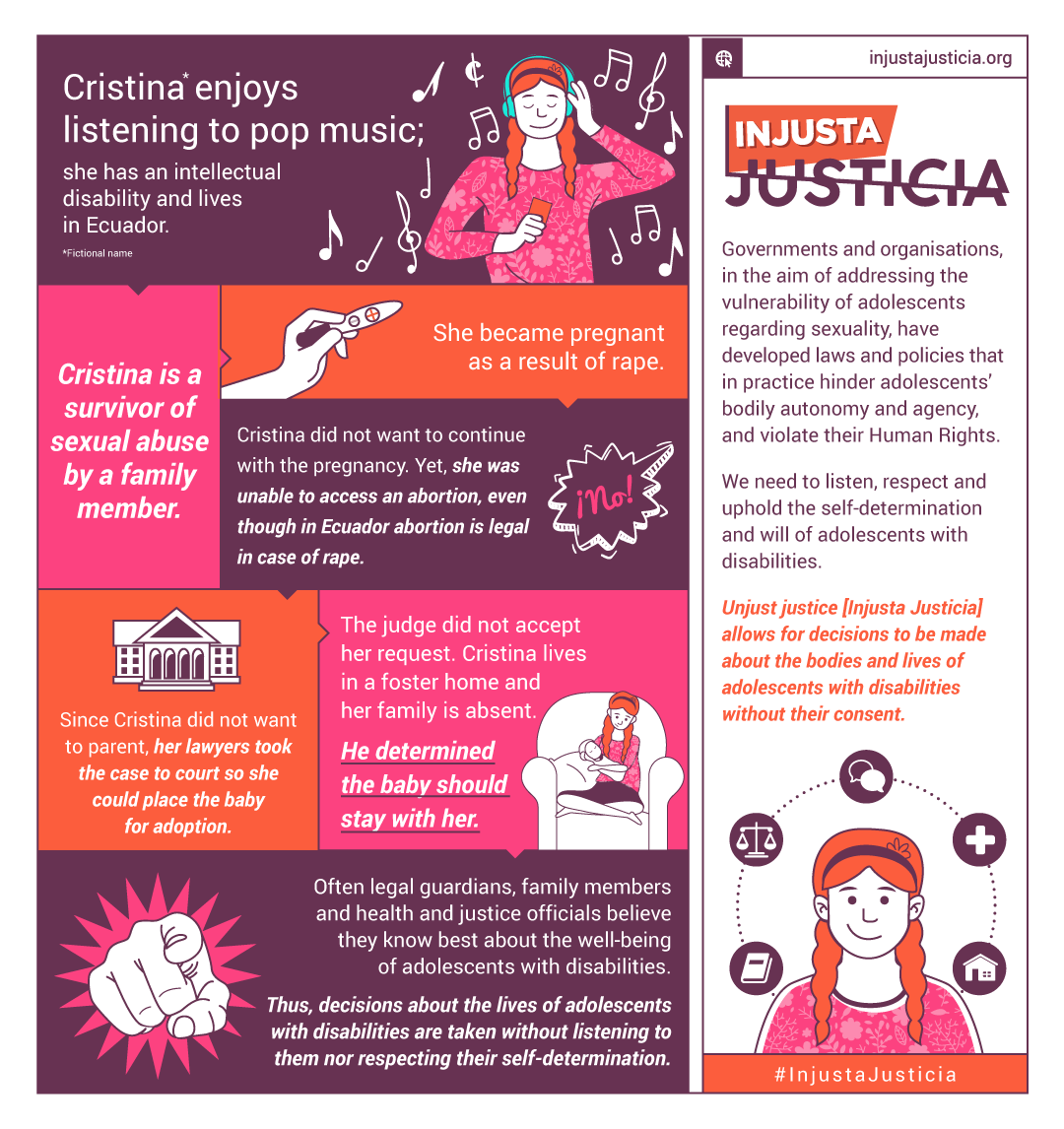Cristina
Click here to get a full description of the infographic.

To begin an adoption process in Ecuador, it is enough for a person to state their wish to place the baby for adoption through an administrative proceeding, but girls and adolescent women who want to do so usually go through a judicial process. It was during this process that a court ruled that the “appropriate” thing to do was for Cristina to keep her baby “because she is the mother”. The judge reached this decision without taking Cristina’s wishes into consideration, and she doesn’t want to take care of the baby.
This case shows how gender stereotypes play a part in the decisions of justice officials. Regardless of a girl, adolescent or woman’s wishes and conditions, the mere fact of having given birth makes them the most suitable to take care of a baby, even against their will.
On the other hand, states must implement the Convention on the Rights of Persons with Disabilities (CRPD) to guarantee that the wishes of people with disabilities are respected and taken into account. Cristina’s case brings to light that health systems and the judicial power often assume that people with disabilities are unable to make decisions in their lives and ignore or disregard the framework established by the CRPD, which leads to serious violations of their rights.
-
States must protect the self-determination and free will of people with disabilities as established in the Convention on the Rights of Persons with Disabilities (CRPD). This entails that public servants must be trained to guarantee its implementation.
-
States must create comprehensive support and care systems for people with disabilities and their families. This would help secure the human, sexual and reproductive rights of adolescents with disabilities.
-
Adolescents with disabilities must also be provided with the support they need to make free and informed decisions. This should include the necessary safeguards so that their will is not assumed by other people.
-
It must be guaranteed that judicial decisions that reflect and perpetuate patriarchal practices and gender stereotypes don’t infringe on girls, adolescents and women’s rights.
-
States must move towards the eradication of the stereotypes associated with people with disabilities, such as the prejudice of a presumed (in)ability to make decisions on their lives.
The Injusta Justicia campaign seeks to promote reflection on the limits of criminal law and punitivism as a defense strategy for sexual and reproductive rights, particularly those of adolescents. The campaign aims, among other things, to put the unforeseen consequences of the unrestricted application of criminal regulations and the impact this has on the autonomy and lives of adolescents under the spotlight. Injusta Justicia doesn’t have – or presume to have – all the answers but intends to inspire debate and to have the conversations we need as feminists to propose transforming strategies and alternatives focused on the survivors. We invite you to take part in this discussion.
Sexual and reproductive rights policy and regulatory framework in Ecuador:
Policies that could have an impact on the lives of adolescents in the region: